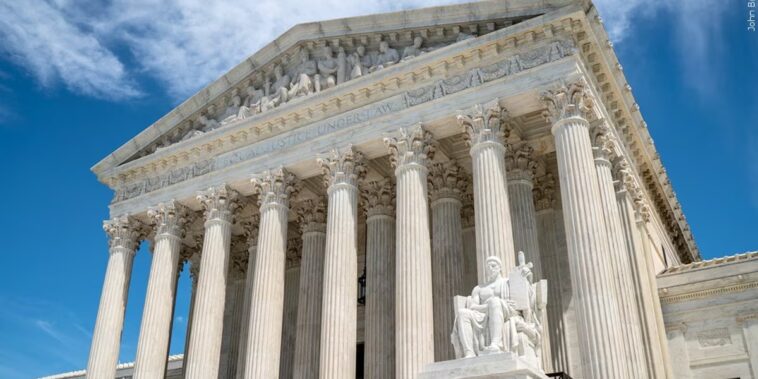Investigative Article Examining Gerrymandering in South Carolina
The United States Supreme Court is set to hear a lawsuit that alleges South Carolina congressional district boundaries were drawn to limit the influence of Black voters. This case could potentially have a far-reaching impact on the entire country, as it could set a precedent for the consideration of racial gerrymandering in other states. This investigative article will take a deep dive into the issues surrounding this case, exploring the history of gerrymandering in the United States, the specifics of the South Carolina case, and the potential implications of the Supreme Court’s decision.
The History of Gerrymandering in the United States
Gerrymandering is the practice of redrawing the boundaries of electoral districts in order to give a political party an electoral advantage over its opponents. It has been practiced in the United States since the early 19th century, when Massachusetts governor Elbridge Gerry approved a redistricting plan that gave his party an advantage. The plan was so convoluted and lopsided that it was compared to a salamander, leading to the term “gerrymandering.”
Gerrymandering has been used ever since, typically by the party in power to maintain their majority. It has long been seen as an unfair and unethical practice, as it gives one party an advantage that is not based on the will of the people. In recent decades, however, the issue has taken on a racial component, with some states being accused of drawing district boundaries in order to limit the influence of minority voters.
The South Carolina Case
The current lawsuit against South Carolina has been brought by the League of Women Voters, who argue that the state’s district boundaries were drawn to diminish the power of Black voters. The lawsuit claims that South Carolina’s congressional district boundaries were drawn in a way that packed Black voters into certain districts, thus reducing their overall influence in the state. The League of Women Voters believes that this violates the Voting Rights Act of 1965, which prohibits racial discrimination in voting.
The Potential Impact of the Supreme Court Ruling
The Supreme Court ruling on the South Carolina case could have far-reaching implications for the entire country. If the Court finds in favor of the League of Women Voters, it could set a precedent for other states to consider racial gerrymandering when redistricting. This could lead to more equitable representation in Congress, as minority voters would no longer be unfairly excluded from the political process.
The Argument Against Racial Gerrymandering
Opponents of the lawsuit argue that the district boundaries were drawn in a way that is both fair and constitutional. They claim that the current district boundaries are the result of normal political considerations, such as the desire to keep communities together and to maximize the influence of certain political groups. These opponents argue that the Supreme Court should not interfere in this process, as it is the responsibility of the state legislature to draw district boundaries, not the federal government.
The Potential Impact of Racial Gerrymandering
If racial gerrymandering is allowed, it could have a significant impact on the political landscape of the United States. It could lead to a more equitable distribution of political power, as minority voters would no longer be excluded from participating in the democratic process. It could also lead to more competitive elections, as candidates would have to appeal to a wider variety of voters in order to win. Finally, it could lead to more progressive policies, as candidates would have to appeal to a larger and more diverse electorate in order to win.
Conclusion
This case has the potential to have a major impact on the political landscape of the United States. The Supreme Court’s ruling on the South Carolina case could set a precedent for other states to consider racial gerrymandering when redistricting, thus leading to more equitable representation in Congress. This could have a major impact on the political process, leading to more competitive elections, more progressive policies, and a more equitable distribution of political power.
READ MORE: https://www.wrdw.com/2023/10/06/supreme-court-weigh-case-challenging-sc-congressional-map/


